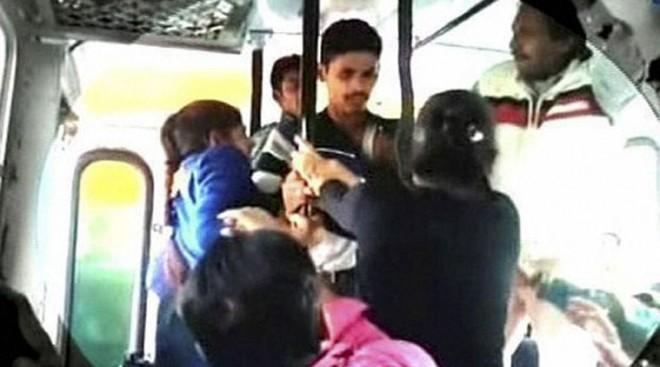
The Rohtak sisters — also referred to as the Sonepat sisters — rose to prominence when a video surfaced of them beating up one of three boys on a bus and accusing the trio of harassing them. They may have been hailed as heroes at the time, but now a court in Rohtak has acquitted the boys of all charges, exposing a big social and legal problem.
Also read: Educated woman having sex multiple times after being promised marriage is not rape, rules Kerala HC
The 'molestation'
Three boys — Kuldeep, Mohit and Deepak — were seen in the video, which surfaced on social media in November 2014 and kept circulating well into the next year, being berated and assaulted by sisters Aarti and Pooja in a moving Haryana Roadways bus, with the sisters alleging that the boys had tried to molest them. The incident reportedly took place near Rohtak, and hence the siblings came to be known as the Rohtak sisters.
The video raised many questions on women's safety in Haryana — a state that does not have a bright record when it comes to crimes against women or even girls. In the upshot of it all, the Indian Army said it would no longer accept two of the accused who had been chosen to join the army after gruelling examinations and on the basis of their merit.
The court case
With a police complaint filed and the case going to trial, the charge sheet was filed in August 2015, and included the testimony of the girl who had filmed the video on the bus. She had reportedly said she was asked by the sisters to film the incident, and that the boys had not tried to molest them.
On Friday, March 3, Rohtak Additional Chief Judicial Magistrate Harish Goyal acquitted the boys, saying that no charge was made out against them. He had heard arguments from both the parties. After the verdict, the girls' counsel, Attar Singh Panwar, said they would appeal the ruling in a higher court.
The social and legal problem
It has been more than two years since the video first surfaced, and it took that much time for the trio of boys to be acquitted. "As a result of this case, their career has suffered because the Army refused to take them in. That is a big trauma," explained Rajesh Vakharia, president of the Save Indian Family Foundation — an organisation that often deals with the false case filed against families by wives and daughters-in-law under the Domestic Violence Act and Section 498A of the Indian Penal Code. The latter is also known as the Dowry Act.
Vakharia demanded that every criminal law be made gender-neutral, and the accused be treated equally, irrespective of their gender. "Also, there should be a misuse clause added to the laws, where if it is found that the complainants had registered a false case just to hassle the accused, they [complainints] are awarded the same sentence [as the accused if they had been convicted] if they are found guilty," he added.
He also said the court and the police should be proactive in taking up cases where complainants commit perjury by giving false evidence. This was the case late last year when a Maharashtra court found that a girl had falsely accused her father of rape, and ordered a case to be filed against her in this regard.








